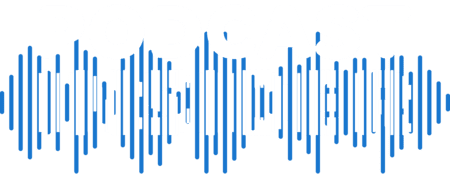April 15 is almost upon us, and if you’re like many podcasters and other content creators, you might be procrastinating on getting those taxes filed. Even if you aren’t making a lot of money yet, confusing tax laws and, let’s face it, less-than-stellar bookkeeping often makes something that should be pretty simple seem complicated. But don’t procrastinate too long! If you earn income – any income – from your podcast, it needs to be reported correctly.
Here are some tips for getting your tax return done right:
- Decide whether you’re filing as a business or a hobby. If you aren’t making much or any money yet, this can be tricky to figure out. “The difference is in the podcaster’s motive – does he or she wish to make a profit or not,” explains Carol Topp, CPA and host of the Dollars and Sense Show. The IRS does offer nine factors they use to differentiate between businesses and hobbies, but they can be a bit vague – for example, “whether you carry on the activity in a businesslike manner.” One thing to keep in mind, warn tax professionals, is that filing as a hobby isn’t necessarily going to be the cheaper route. There’s a risk that you could trigger an audit if you file a valid business as a hobby, and if you declare your podcast a hobby, you are also limited to deducting expenses up to the amount of income it’s produced – you can’t take a loss on a hobby.
- Start as soon as you have expenses. “That’s sooner than most podcasters think about taxes!” says Topp. You should start tracking and reporting your podcast as soon as you have expenses instead of waiting until you have income.
- Know what counts as income and deductible expense. Equipment (your mic and software, for example,) fees associated with services like podcast hosting and statistics, travel and entry fees to industry conferences and events, business-related meals, classes or podcast consulting services, studio/recording space or a home office, and graphic design and website setup fees are just some of the things you may be able to write off as an expense related to your podcast. Income can include free products, exchanges from bartering, and of course, any monetary payment you receive whether it’s via check, direct deposit, Paypal, cash, or some other format. If you aren’t sure if something counts as a taxable income or deductible expense, consult a tax professional.
- Keep household and podcasting finances separate. If you haven’t been keeping track of your finances – or keeping your podcasting expenses and income separate from your household finances – you’re probably realizing right about now how big a mess that can create. “Separating business income from your personal income makes tax preparation easier, but it also allows the podcaster to have a better idea if the business is profitable,” advises Topp. “If business and personal are all mixed into one checking account, it requires more bookkeeping to see how the business is doing.”
- Record everything. As for assuming you’ll remember how much you spent on that trip to Podcast Movement? Nuh-uh. “Using a spreadsheet or accounting software is best – track of all your income and all your expenses. Also, track your meals and mileage. Do not rely on memory!”
Great advice, but nobody’s perfect. If you are getting organized a little late this year, you aren’t alone! Just commit to making life easier for yourself when it comes to filing taxes by getting informed, separating out the podcast and household finances out, and keeping good records…starting now. Topp offers a free downloadable business income/expense spreadsheet you can use to keep track of your podcast finances. While Topp’s site is aimed at writers, there are many parallels between podcasters and writers when it comes to taxes, so visit TaxesForWriters.com for more great tips and resources while you prepare your taxes.
A note: we at Blubrry are experts in podcasting, but not necessarily tax preparation! To make sure you’re protecting yourself and your podcast, be sure to consult IRS resources and/or speak to a tax professional if you have any questions.






